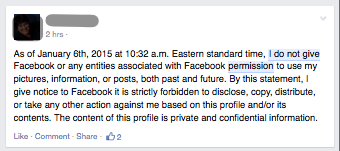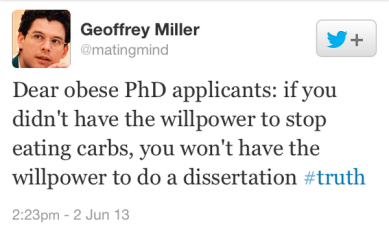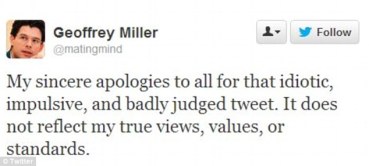If you’re a Facebook user you will, from time to time, notice a slew of identical content being shared around and commented upon. A lot of it relates to the platform itself, perhaps a change to its Privacy policy or the fact that Facebook is going to charge to use. That one is a perennial favourite and no matter how many times it appears it never fails to win numerous shares and encourage outraged comments.
It would appear that there are a larger number of Facebook users who are happy to take everything they see on the site at face value, irrespective of how many scams, fake posts and downright lies are created and posted. When another one comes along, they get red in the face, step up onto the high horse and extol their ire in no uncertain terms.
Which is why a number of posts in recent days sporting the same disclaimer caught my attention. I love a good disclaimer, they are great fun as I wrote in my blog “Disclaiming the Disclaimer”. Some are creative, some are not, all are utterly useless.
Here’s the latest one
On the one hand it gives the impression that Facebook is sharing our content and pictures with gay abandon when in fact it’s merely the notice board on which the notices are pinned. It’s not Facebook you want to worry about sharing that photo of you doing that thing with the inflatable banana and the marshmallows. That’ll be other people, they’re the ones you want to be concerned about.
On the other it forgets that if you were to post an offensive comment it won’t Detective Inspector Facebook who feels your collar it’ll be the local Rozzers.
In short, someone’s made it up for a lark and as always, the Facebook herd has followed as obediently as always with each share leading to another and so on.
Facebook has never claimed to own your content and how public it is depends on your own Privacy settings. It’s yet another example of users needing to be responsible for their own platforms and not lay the blame at the door of a specific channel when it goes a bit wrong.




